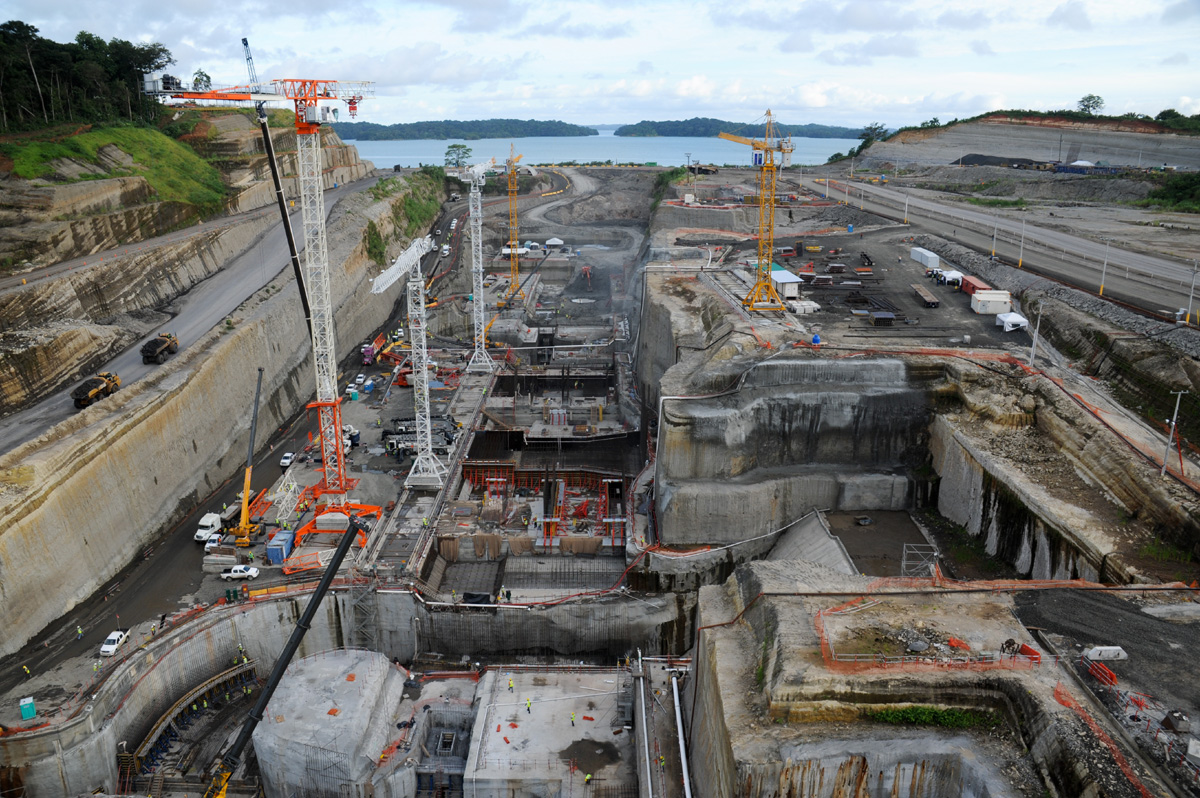EspañolDecember 31 marked the 14th anniversary of the United States’ transfer of the Panama Canal — a channel joining the Atlantic and Pacific oceans — to the Central American country. Not only has the channel contributed to raising Panama’s government reserves to over US$8 billion, it has become a national symbol. This week, however, the interoceanic channel has become the center of attention due to a conflict that threatens to halt its expected enlargement.
Context
Since Panamanians have sovereignty over the canal, the Panama Canal Authority (ACP) is the government agency responsible for the operation, management, maintenance, and upgrading of the Canal, with one purpose: to guarantee its efficiency and profitable functioning. In 2011, the Ethisphere Institute recognized ACP as one of the most ethical companies in the world.
In 2006, through a referendum, the ACP put forward the motion to enlarge the canal. Despite vocal opposition, Panamanians voted in favor of this action with an 80 percent majority.
Three years later, the United Group for the Canal (GUPC) — a consortium formed by the Italian company Impregilo, the Belgian Jan de Nul, the Panamanian Constructora Urbana S.A., and led by the Spanish Sacyr Vallehermoso — won the request for bids to design and build the third set of locks for the channel. After GUPC obtained the highest score and offered the lowest price (US$3.1 billion) out of the three participant companies in the bid, they began working on the enlargement.

Conflict between Consortium GUPC and Panama Canal Authority
According to the contract, the consortium was set to complete the expansion in 1,883 days (just over five years). During this period, in 2012, the group of companies demanded $585 million from the ACP for what they alleged were impeded concrete supplies and, consequently, higher costs. The ACP, however, rejected their claim.
By the end of 2013, after completing 62 percent of the project, GUPC sent an advance notice that they were halting construction, given the impossibility of completing it within the initially agreed price.
GUPC claims the ACP engaged in key violations of the contract. “Despite reaching a deal between both parties, the director [of ACP, Jorge Quijano] has decided not to comply . . .” However, the consortium maintains open communication with the ACP “to reach a fulfilling agreement that puts an end to the current contractual imbalance.”
In the notice, GUPC refers to the “project’s elevated costs, from unexpected circumstances caused by the authorities.” These elevated costs, they allege, are around $1.625 billion, a number that the consortium demands to be reimbursed in a period of no more than 21 days; otherwise, they will stop working on the canal.
Quijano has rejected “these pressures in a categorical matter” and said that he will not negotiate “out of contract.” Likewise, he stated that “no matter what kind of pressure there is against ACP, we will stand by our demands for the United Group for the Canal to respect the contract which they accepted and signed themselves.”
ACP threatened the consortium and said they will take over the construction of the Canal, if the consortium doesn’t abide by its contract. In a press release, ACP stated that “it will put into effect the mechanisms” provided “in order to complete the project.”
Even though ACP wanted the work finished by October 2014, to coincide with the Canal’s 100th anniversary, the construction was already nine months behind schedule and was expected to be finished in the first quarter of 2015.
Government Intervention
Panama’s President Ricardo Martinelli will travel to Spain and Italy to demand from both governments the company’s compliance with the contract. Martinelli said they have a “moral responsibility” on the subject and stated, “I am going to Spain and Italy to make claims to these governments, because it is not possible for a company to propose such an elaborate scale of elevated costs in the enlargement project, which is visible for all mankind, first bidding with one price and now claiming that the prices are going up.”
The Spanish ambassador in the Central American country, Jesús Silva, is willing to mediate for the parties, and said that if the construction ceases, both will lose. According to Silva, Mariano Rajoy’s administration is considering the prospect of sending the Spanish minister for development, Ana Pastor, to Panama in the short term, as well as Sacyr’s president (a pivotal member of the consortium), and GUPC leader, Manuel Manrique.
If they do not settle the dispute, the claim would be transferred to a dispute resolution board, and ultimately to an international arbitrage court.
 Versión Español
Versión Español












